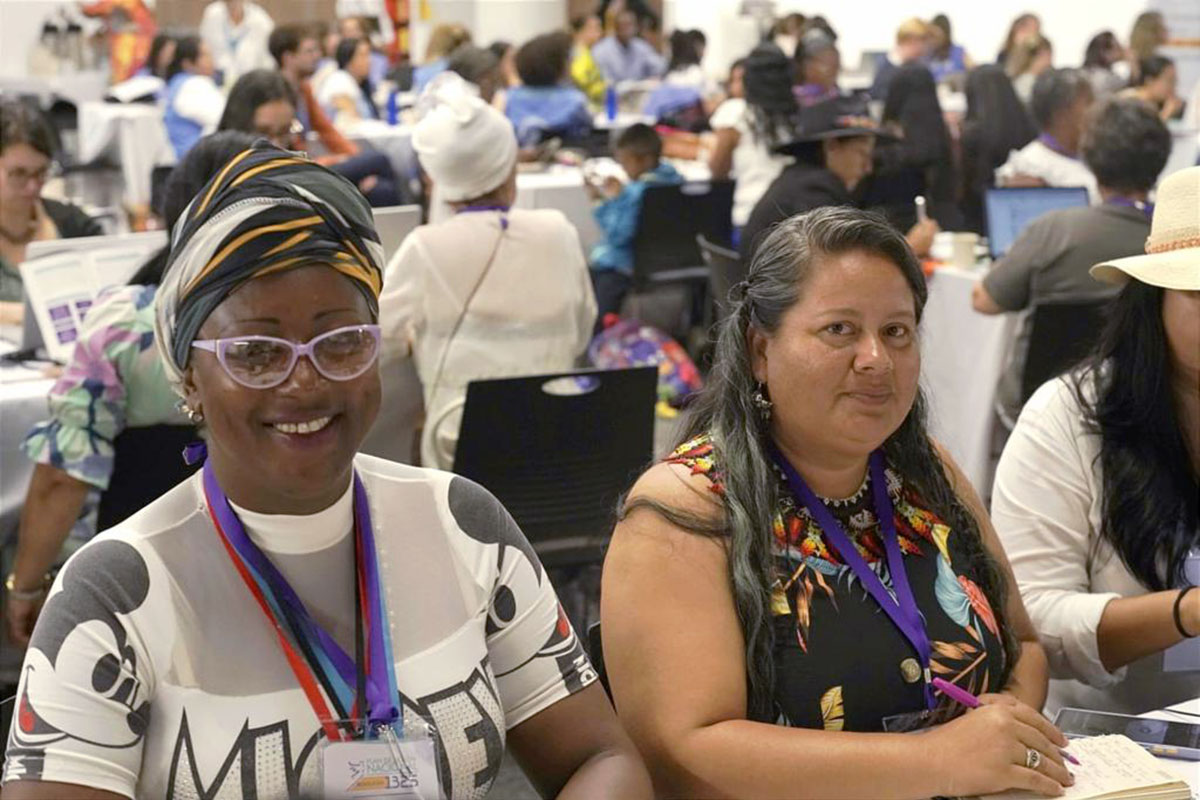
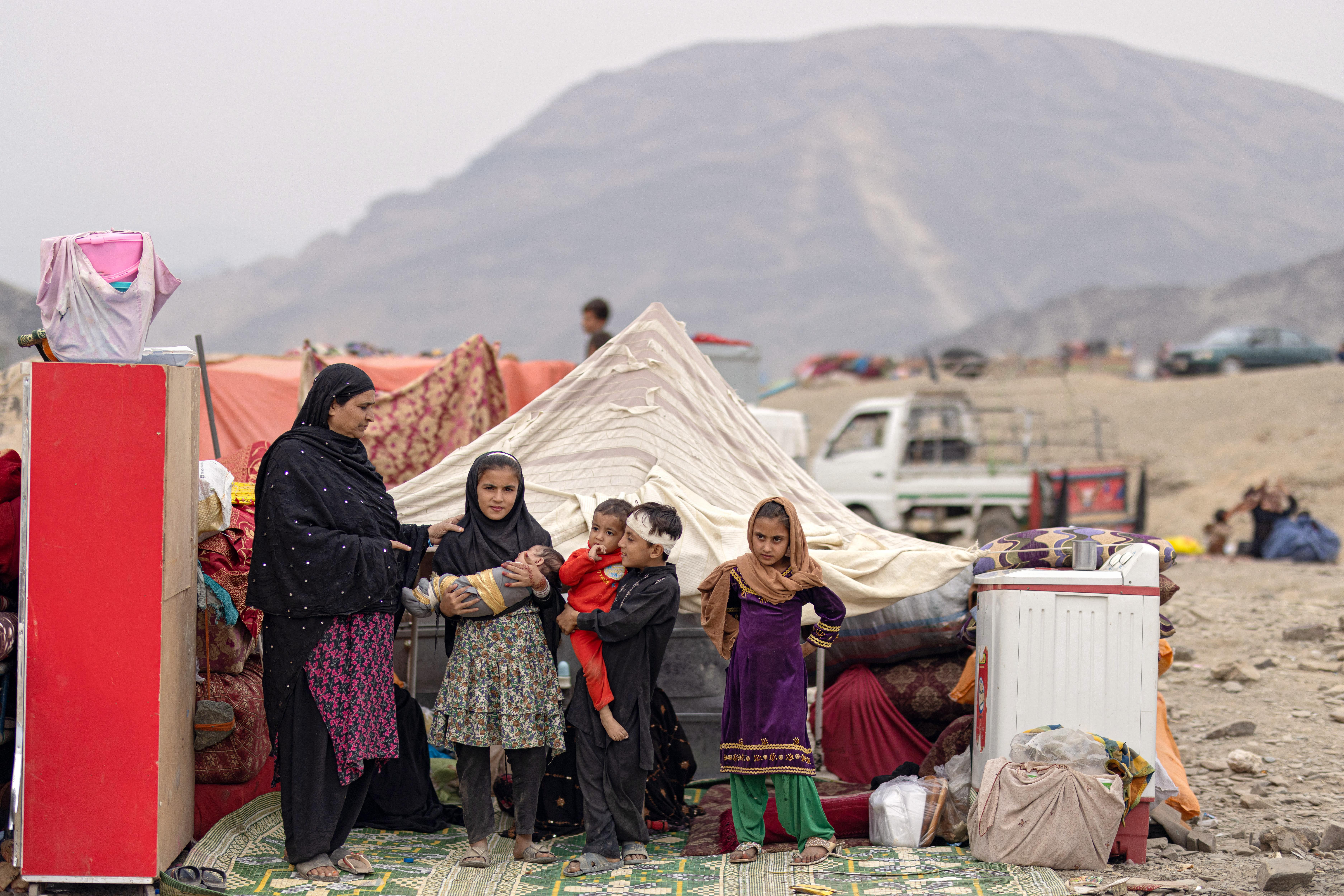
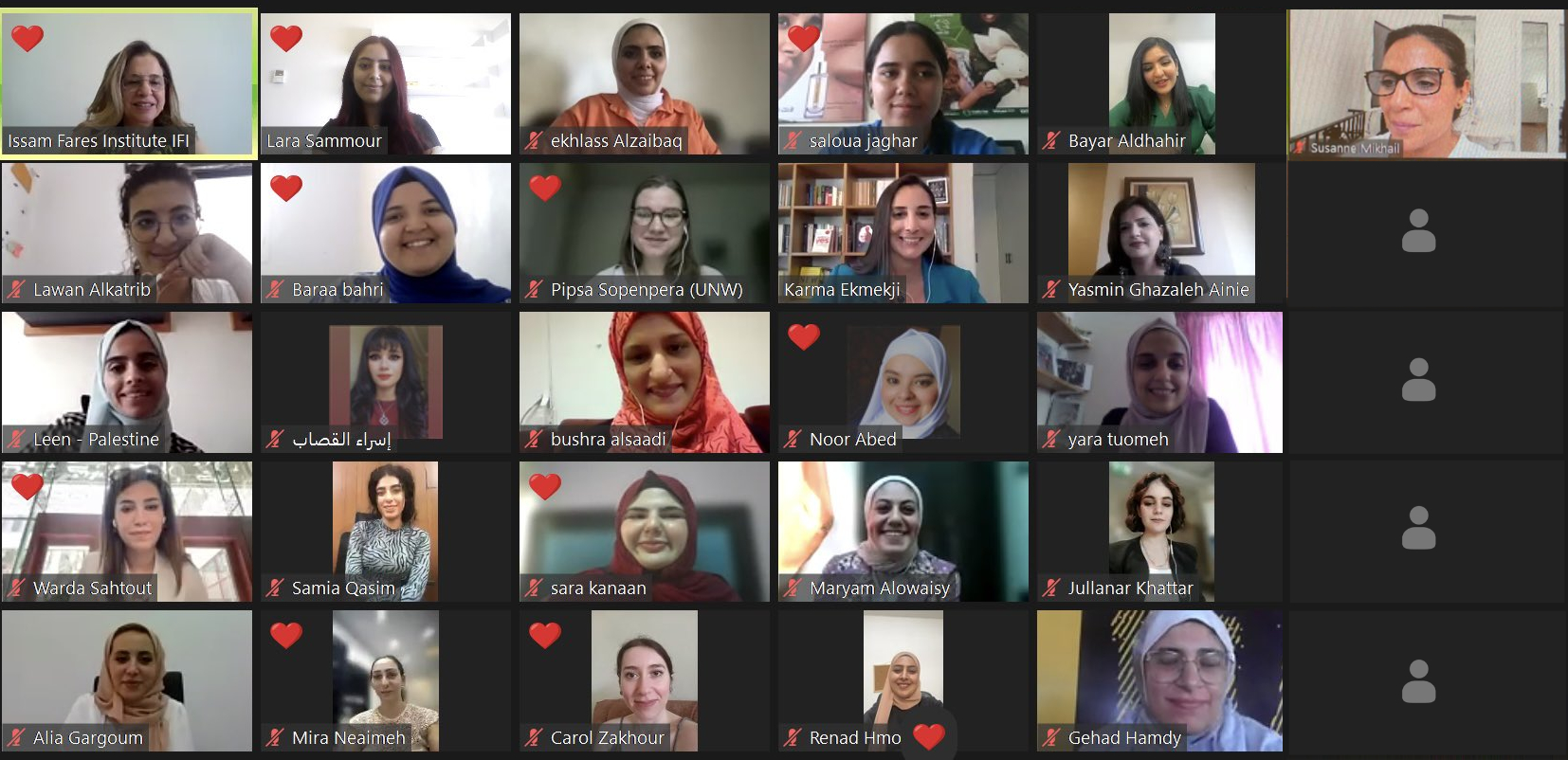
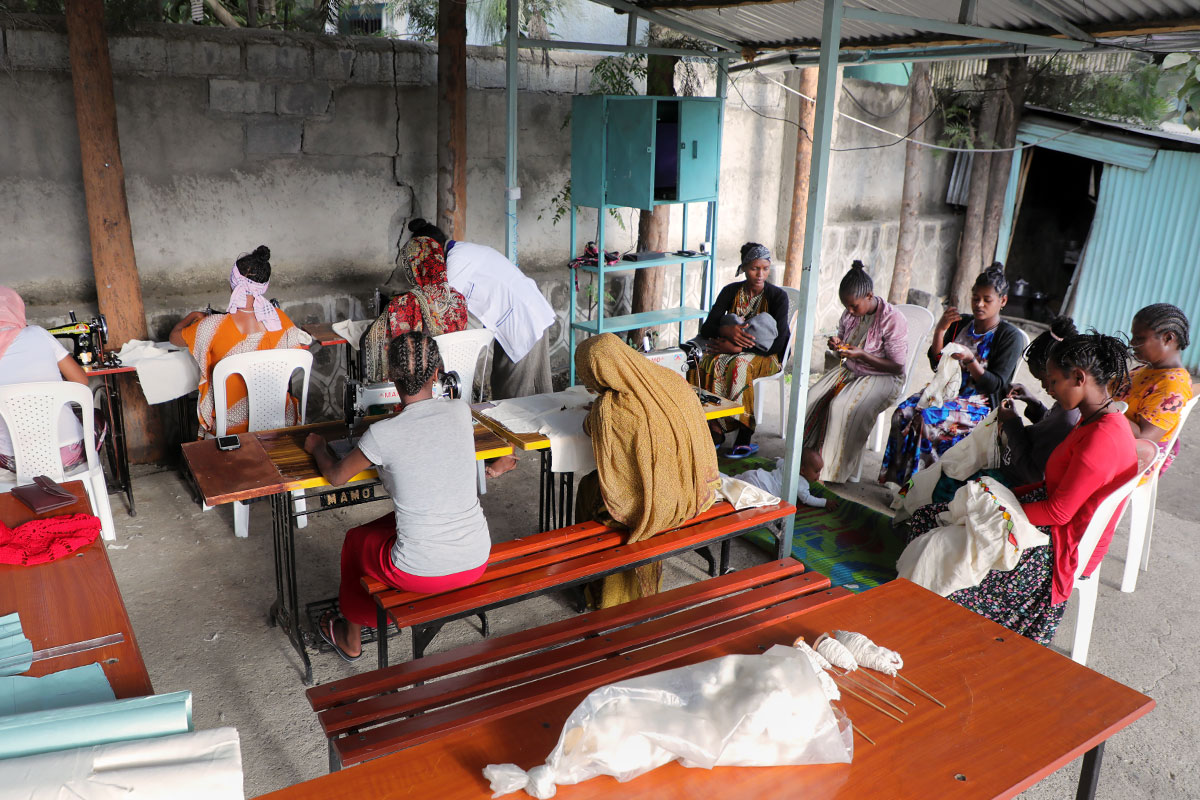

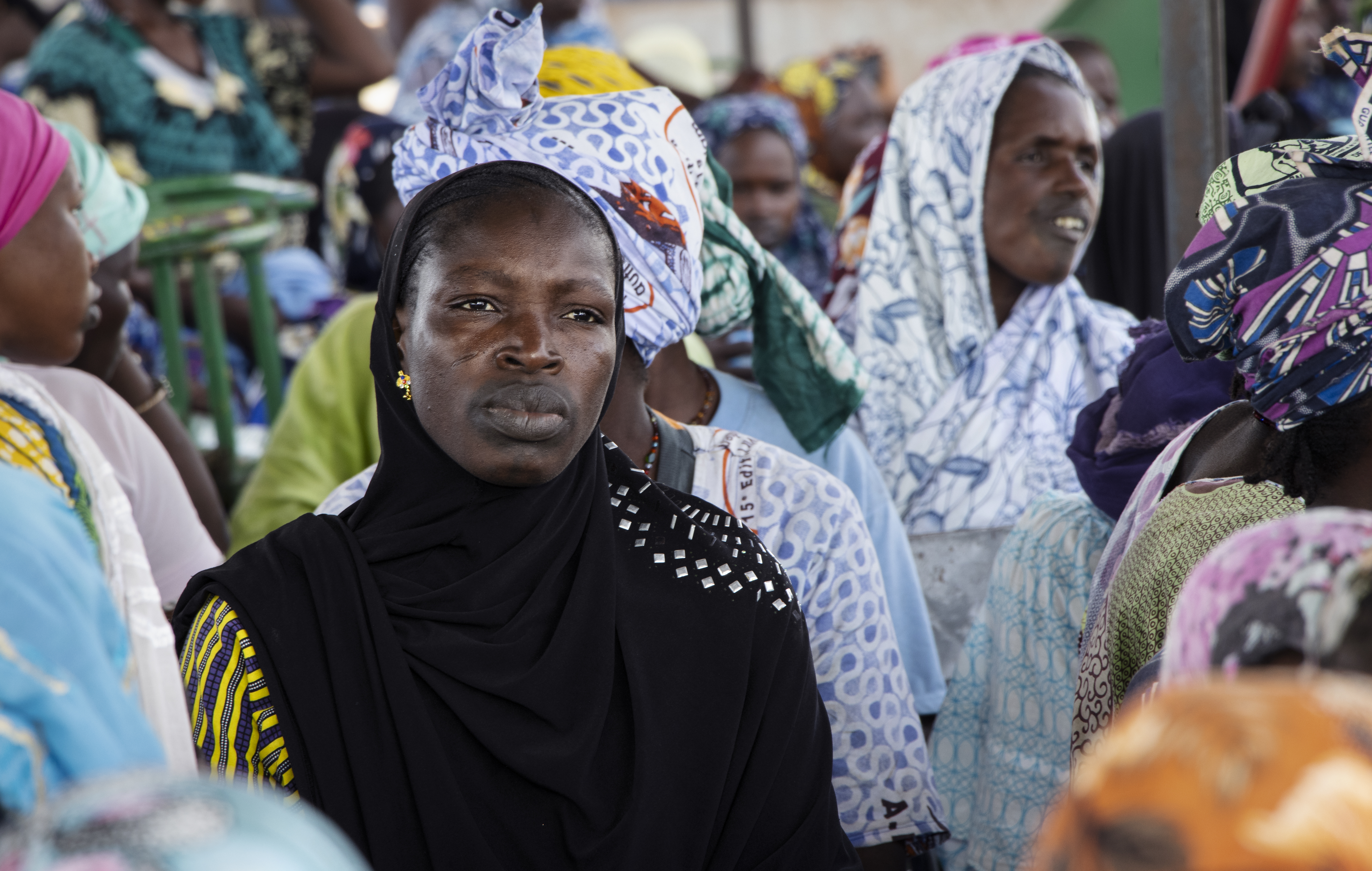
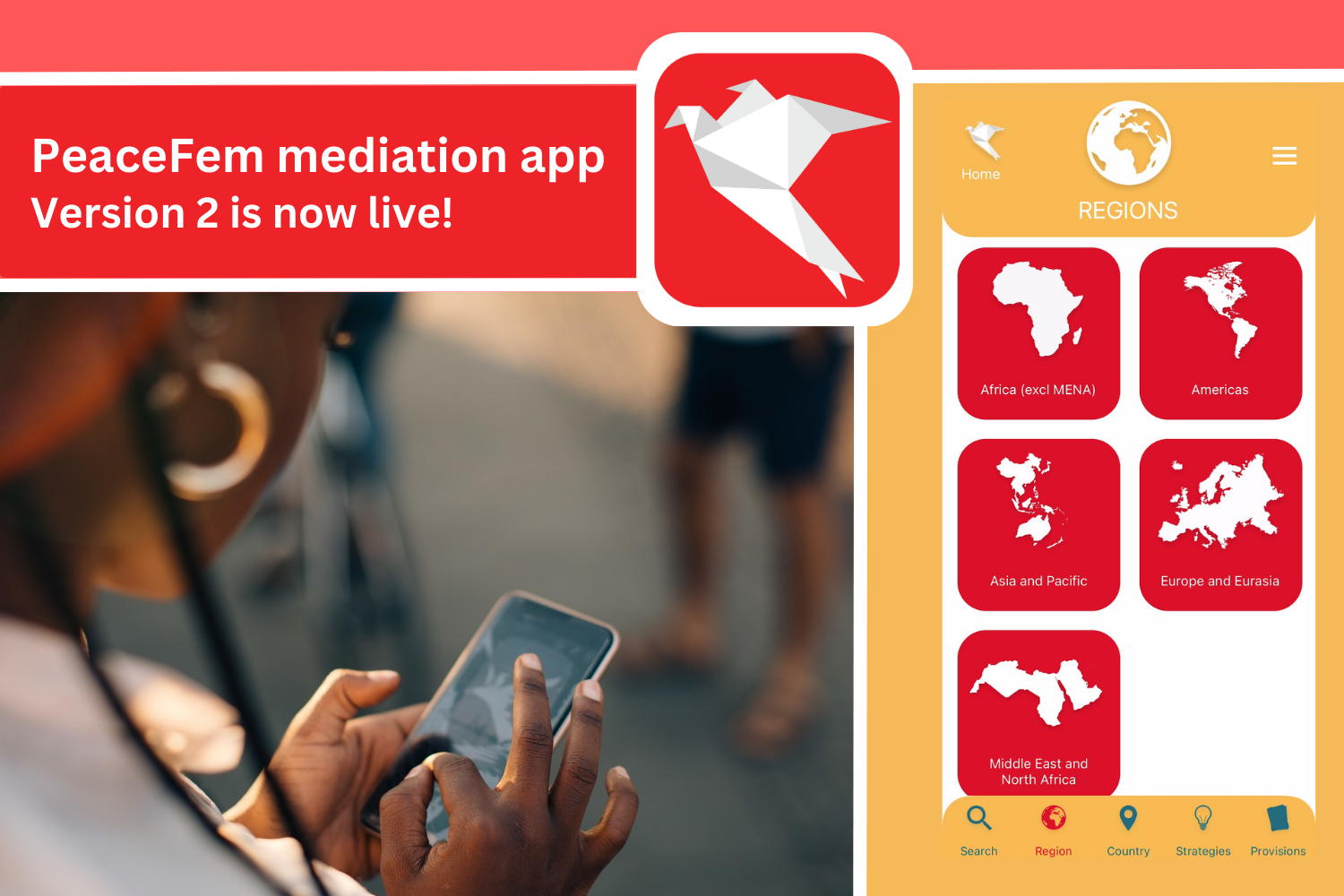
How women’s voices are shaping Colombia’s path to peace
In collaboration with the Government of Colombia and civil society allies, UN Women is amplifying women's central roles in peacebuilding. The process has opened space for women to lead and participate in peace talks, transitional justice forums and security reforms.
In 2023, UN Women supported a roadmap to formulate the country’s first National Action Plan on Security Council resolution 1325 on women, peace and security. It facilitated a collaborative process between the Government and 27 women's organizations and platforms on a national steering committee. More than 1,500 women from 32 Colombian departments helped define the scope of the plan by taking part in six regional forums, seven local gatherings and seven meetings on specific issues in the peace process.
Their contributions shaped the selection of themes and actions under four pillars: prevention, participation, protection and recovery. The plan reflects principles of human security and the intersections among gender and other forms of marginalization and discrimination. It covers critical concerns, such as preventing sexual violence in armed conflict and confronting social tolerance for gender-based violence. It also outlines how to establish security measures to protect women human rights defenders and peacebuilders. Colombia’s plan could become a model for peacebuilding in other parts of the world. Read more>
Hundreds of thousands of Afghans face harsh return after expulsion from Pakistan
In early September 2023, fewer than 300 people per day crossed the official border points from Pakistan to enter Afghanistan. But since the Government of Pakistan decreed on 15 September that undocumented immigrants would be required to leave the country—a policy that applies to an estimated 1.3 million Afghan refugees—the number of daily crossings increased significantly, at one point reaching about 20,000.
Since 1 November, when the policy went into force, more than 400,000 Afghans have left Pakistan and returned to their home country, about 80 percent of whom are women or children. Read more>
Empowering young women for sustainable peace: Young Women Peacebuilders programme launched in the Arab States
UN Women, the Issam Fares Institute for Public Policy and International Affairs (IFI) at the American University of Beirut launched on August 1 the 2023 edition of the Young Women Peacebuilders programme to nurture a new generation of women peacebuilders in the Arab region.
The online capacity building initiative is designed to support young women in gaining knowledge and skills that can enhance their positive role in peace, security, and conflict prevention. It also brings visibility to the initiatives and activism of young women from the region towards achieving positive and sustainable peace. Read more>
In Ethiopia, a rapidly changing humanitarian crisis demonstrates the need for a flexible response
Having survived two years of brutal civil war, women and girls in Ethiopia are now facing a rapidly evolving humanitarian crisis as the country struggles to rebuild. The widespread violence, which reached a ceasefire in November 2022, left 600,000 people dead and millions displaced.
Women and girls fled hundreds of miles, fearing run-ins with armed groups who have perpetrated rape and sexual abuse. While the extent of gender-based violence (GBV) in Ethiopia is unknown, the number of people in need of GBV services in 2022 increased to 5.8 million from 3.5 million in 2021. Read more>
Civil society steps in to heal women’s post-earthquake trauma in Türkiye
Following the earthquake that hit Türkiye and Syria on 6 February KAMER, a partner civil society organization of UN Women Türkiye, is among the many civil society organizations that are working tirelessly to support survivors. KAMER has been identifying and helping meet the needs of women, girls and their families from the beginning. While trying to attend to their immediate needs in Diyarbakır, KAMER has also been providing psychological support to women and girls who have lost their homes and loved ones and are struggling with the potent mental after-effects of the disaster. Read more>
Mali: Gender-responsive peacebuilding and humanitarian action
In Mali, UN Women is working to make peacebuilding and humanitarian action more responsive to gender. Collaboration with local women’s organizations resulted in nearly 1,300 women gaining leadership skills and becoming key actors in conflict prevention and resolution, including through dialogues with regional authorities. Other support helped over 4,400 conflict-affected women realize an 80 per cent jump in income through new livelihood activities such as catering, soap production and agri-food processing. This improved food security and helped meet other critical family needs, including for children’s schooling, while fortifying community ties.
UN Women has built on these achievements by spearheading a roadmap for systematically mainstreaming gender in humanitarian action, establishing a network of gender focal points across humanitarian organizations in the country and training nearly 500 personnel. These measures back humanitarian efforts to accurately address the specific needs of women and girls, including through detailed needs assessments and data disaggregated by sex, age and disability. More targeted support for women and girls in protection and health, among other areas, will significantly improve their lives and mark a pivotal shift towards more inclusive and gender-responsive humanitarian practices.
Supporting inclusive peace through technology: PeaceFem app V2 now live
Women’s participation in peacebuilding is vital for building inclusive, sustainable peace. United Nations Security Council Resolution 1325 reaffirms the important role of women in conflict resolution and calls for women’s equal participation and involvement in peace and security. Yet more than 20 years since its adoption, women frequently remain excluded from peace process negotiations and often participate at great personal risk. How can we encourage gender mainstreaming in peace processes, and can technology help?
In 2020 UN Women and our partners, PeaceRep, InclusivePeace, and the Gender, Peace and Security Centre at Monash University launched the PeaceFem mobile app to meet demand for tools and resources supporting women’s inclusion in peace processes. PeaceFem is designed to support women’s rights advocates, mediation teams, and other women, peace and security (WPS) actors in influencing peace process negotiations by providing case studies on gender provisions in peace agreements, and strategies used to work for their inclusion. Read more>

Colombia: Peace negotiations
In collaboration with the Government of Colombia and civil society allies, UN Women is amplifying women's central roles in peacebuilding. The process has opened space for women to lead and participate in peace talks, transitional justice forums and security reforms.
In 2023, UN Women supported a roadmap to formulate the country’s first National Action Plan on Security Council resolution 1325 on women, peace and security. It facilitated a collaborative process between the Government and 27 women's organizations and platforms on a national steering committee. More than 1,500 women from 32 Colombian departments helped define the scope of the plan by taking part in six regional forums, seven local gatherings and seven meetings on specific issues in the peace process.
Their contributions shaped the selection of themes and actions under four pillars: prevention, participation, protection and recovery. The plan reflects principles of human security and the intersections among gender and other forms of marginalization and discrimination. It covers critical concerns, such as preventing sexual violence in armed conflict and confronting social tolerance for gender-based violence. It also outlines how to establish security measures to protect women human rights defenders and peacebuilders. Colombia’s plan could become a model for peacebuilding in other parts of the world. Read more>

Afghanistan: Returnees from Pakistan
In early September 2023, fewer than 300 people per day crossed the official border points from Pakistan to enter Afghanistan. But since the Government of Pakistan decreed on 15 September that undocumented immigrants would be required to leave the country—a policy that applies to an estimated 1.3 million Afghan refugees—the number of daily crossings increased significantly, at one point reaching about 20,000.
Since 1 November, when the policy went into force, more than 400,000 Afghans have left Pakistan and returned to their home country, about 80 percent of whom are women or children. Read more>

Lebanon: Peacebuilders programme
UN Women, the Issam Fares Institute for Public Policy and International Affairs (IFI) at the American University of Beirut launched on August 1 the 2023 edition of the Young Women Peacebuilders programme to nurture a new generation of women peacebuilders in the Arab region.
The online capacity building initiative is designed to support young women in gaining knowledge and skills that can enhance their positive role in peace, security, and conflict prevention. It also brings visibility to the initiatives and activism of young women from the region towards achieving positive and sustainable peace. Read more>

Ethiopia: Humanitarian crisis
Having survived two years of brutal civil war, women and girls in Ethiopia are now facing a rapidly evolving humanitarian crisis as the country struggles to rebuild. The widespread violence, which reached a ceasefire in November 2022, left 600,000 people dead and millions displaced.
Women and girls fled hundreds of miles, fearing run-ins with armed groups who have perpetrated rape and sexual abuse. While the extent of gender-based violence (GBV) in Ethiopia is unknown, the number of people in need of GBV services in 2022 increased to 5.8 million from 3.5 million in 2021. Read more>

Türkiye: Healing women’s post-earthquake trauma
Following the earthquake that hit Türkiye and Syria on 6 February KAMER, a partner civil society organization of UN Women Türkiye, is among the many civil society organizations that are working tirelessly to support survivors. KAMER has been identifying and helping meet the needs of women, girls and their families from the beginning. While trying to attend to their immediate needs in Diyarbakır, KAMER has also been providing psychological support to women and girls who have lost their homes and loved ones and are struggling with the potent mental after-effects of the disaster. Read more>

Mali: Peacebuilding and humanitarian action
In Mali, UN Women is working to make peacebuilding and humanitarian action more responsive to gender. Collaboration with local women’s organizations resulted in nearly 1,300 women gaining leadership skills and becoming key actors in conflict prevention and resolution, including through dialogues with regional authorities. Other support helped over 4,400 conflict-affected women realize an 80 per cent jump in income through new livelihood activities such as catering, soap production and agri-food processing. This improved food security and helped meet other critical family needs, including for children’s schooling, while fortifying community ties.
UN Women has built on these achievements by spearheading a roadmap for systematically mainstreaming gender in humanitarian action, establishing a network of gender focal points across humanitarian organizations in the country and training nearly 500 personnel. These measures back humanitarian efforts to accurately address the specific needs of women and girls, including through detailed needs assessments and data disaggregated by sex, age and disability. More targeted support for women and girls in protection and health, among other areas, will significantly improve their lives and mark a pivotal shift towards more inclusive and gender-responsive humanitarian practices.

PeaceFem app V2: Peace through technology
Women’s participation in peacebuilding is vital for building inclusive, sustainable peace. United Nations Security Council Resolution 1325 reaffirms the important role of women in conflict resolution and calls for women’s equal participation and involvement in peace and security. Yet more than 20 years since its adoption, women frequently remain excluded from peace process negotiations and often participate at great personal risk. How can we encourage gender mainstreaming in peace processes, and can technology help?
In 2020 UN Women and our partners, PeaceRep, InclusivePeace, and the Gender, Peace and Security Centre at Monash University launched the PeaceFem mobile app to meet demand for tools and resources supporting women’s inclusion in peace processes. PeaceFem is designed to support women’s rights advocates, mediation teams, and other women, peace and security (WPS) actors in influencing peace process negotiations by providing case studies on gender provisions in peace agreements, and strategies used to work for their inclusion. Read more>

